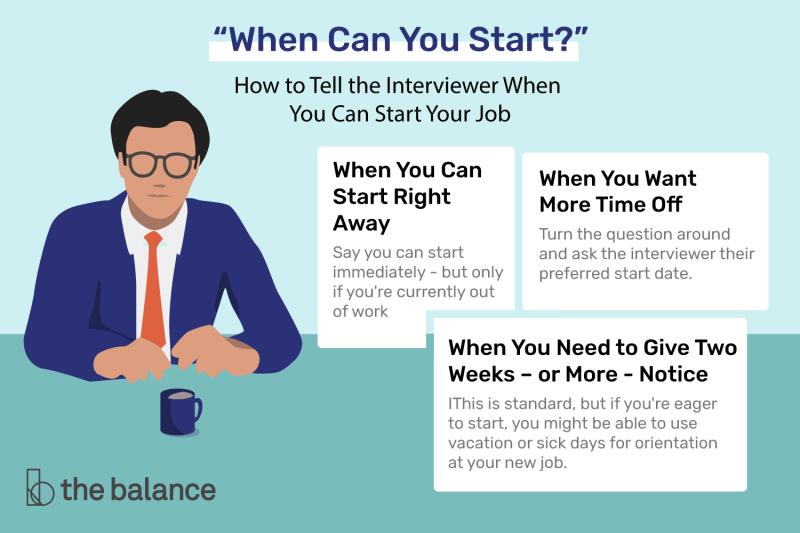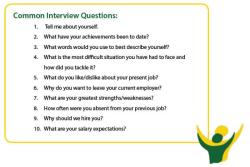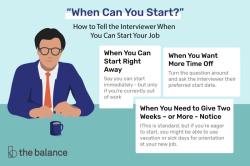How do you start a job interview?
Starting a job interview effectively is crucial to set a positive tone and create a comfortable environment for both you and the candidate. Here are some techniques and best practices to consider when commencing a job interview:
1. Greet Warmly:
- Begin the interview with a friendly and professional greeting. Offer a firm handshake and make eye contact to establish a positive connection.
2. Introduce Yourself:
- Briefly introduce yourself, including your name and your role within the company. This helps the candidate understand who they are speaking with.
3. Provide an Overview:
- Give a brief overview of the interview process. Outline what the candidate can expect, including the structure, approximate duration, and any specific components, such as technical assessments or multiple interview rounds.
4. Explain the Agenda:
- Share the agenda for the interview, highlighting the key topics and areas you'll be covering. This helps the candidate mentally prepare and align their responses accordingly.
5. Build Rapport:
- Start with some small talk to build rapport. You might discuss non-controversial topics such as the weather, their journey to the interview, or any common interests you've identified from their resume.
6. Set a Positive Tone:
- Express enthusiasm about the candidate's presence and interest in the position. Communicate that you are looking forward to learning more about them.
7. Explain the Interview Format:
- Clarify whether the interview will be a one-on-one, panel interview, or a combination. Inform the candidate if there will be opportunities for them to ask questions throughout or at the end.
8. Review the Candidate's Resume:
- Before delving into questions, briefly review the candidate's resume. This helps you tailor your questions based on their experiences and allows you to ask for clarification on specific points.
9. Ask an Icebreaker Question:
- Start with a light icebreaker question to ease tension and allow the candidate to relax. This could be a non-job-related question, such as their favorite book or a recent accomplishment they're proud of.
10. Address Nervousness:
- Acknowledge that interviews can be nerve-wracking and reassure the candidate that it's a two-way conversation to get to know each other better.
11. Outline the Interview Structure:
- Briefly explain how the interview will progress, including different sections, types of questions, and any specific assessments or exercises planned.
12. Encourage Questions:
- Invite the candidate to ask any initial questions they may have before you begin. This sets a collaborative tone and allows you to address any concerns they might have upfront.
13. Ensure Comfort:
- Pay attention to the candidate's comfort level. Offer water if needed, and make sure the interview room is conducive to a focused conversation.
14. Reiterate Next Steps:
- Before diving into the interview questions, briefly mention what the next steps in the hiring process will be and when the candidate can expect to hear back.
Remember, the way you start an interview contributes significantly to the overall candidate experience. By being welcoming, transparent, and professional, you create an environment where the candidate can showcase their skills and personality effectively.
What preparations should one make before starting a job interview?
A job interview is an opportunity to showcase your skills and qualifications to a potential employer. It's important to be well-prepared to make a good impression. Here are some steps you can take to prepare for your interview:
- Research the company and the position: Before your interview, take some time to research the company and the position you're interviewing for. This will help you understand the company's culture, values, and mission. It will also help you tailor your responses to the interviewer's questions.
- Practice your answers to common interview questions: There are a few questions that are commonly asked in job interviews. Practice answering these questions so that you can deliver your answers confidently and concisely.
- Prepare your own questions: In addition to answering the interviewer's questions, you should also prepare your own questions to ask. This shows that you're interested in the company and the position.
- Dress professionally: Make sure you dress professionally for your interview. This means dressing appropriately for the company culture and the position you're interviewing for.
- Get a good night's sleep: Being well-rested will help you perform your best in your interview.
- Arrive on time: Punctuality is important, so make sure you arrive on time for your interview.
- Bring a copy of your resume: Bring a copy of your resume to your interview in case the interviewer doesn't have one.
- Bring a notepad and pen: You may want to take notes during your interview.
- Be yourself: The most important thing is to be yourself. The interviewer is trying to get to know you, so don't be afraid to let your personality shine through.
By following these tips, you can make sure you're well-prepared for your job interview.
How does one create a positive first impression at the beginning of a job interview?
The first few minutes of a job interview are crucial. This is when you have the opportunity to make a positive first impression on the interviewer. Here are some tips on how to do that:
- Make eye contact: Eye contact shows that you're confident and engaged.
- Smile: Smiling makes you look approachable and friendly.
- Shake hands firmly: A firm handshake is a sign of confidence and professionalism.
- Be polite and respectful: Address the interviewer by their name and use polite language.
- Thank the interviewer for their time: This shows that you're grateful for the opportunity to interview.
What are effective ways to greet interviewers and initiate the conversation?
There are a few different ways to greet your interviewers and initiate the conversation. Here are a few effective ways to do that:
- Start with a confident greeting: "Good morning, Ms. Smith. It's a pleasure to meet you."
- Introduce yourself: "My name is John Doe, and I'm here to interview for the marketing manager position."
- Mention a common interest: "I noticed that you're a fan of the [local sports team]. I'm a big fan as well."
- Ask a question: "I'm curious to learn more about the company's culture. What would you say is one of the things that makes working here special?"
How does one introduce themselves confidently and professionally in a job interview?
Here are a few tips on how to introduce yourself confidently and professionally in a job interview:
- Start with a confident greeting: "Good morning, Ms. Smith. It's a pleasure to meet you."
- State your name and the position you're interviewing for: "My name is John Doe, and I'm here to interview for the marketing manager position."
- Give a brief overview of your qualifications: "I have five years of experience in marketing, and I'm skilled in [list of skills]."
- Express your enthusiasm for the opportunity: "I'm very excited about the opportunity to interview for this position. I'm confident that I have the skills and experience that you're looking for."
What role does body language play in starting a successful job interview?
Body language plays an important role in making a good first impression. Here are a few tips on how to use body language to your advantage in a job interview:
- Maintain good posture: Sit up straight and avoid slouching.
- Make eye contact: Eye contact shows that you're confident and engaged.
- Smile: Smiling makes you look approachable and friendly.
- Avoid fidgeting: Fidgeting can make you look nervous.
- Use open body language: Uncross your arms and keep



